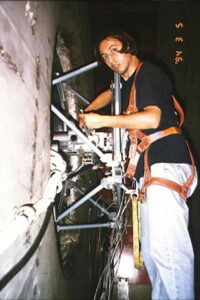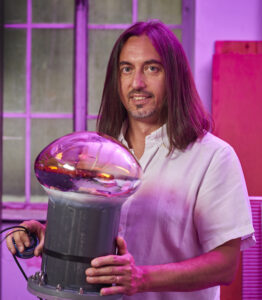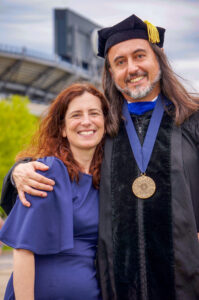Miguel Mostafá is a professor of physics and the Dean of the College of Science and Technology at Temple University since October 2023.

After obtaining his Ph.D. in high energy particle physics (measuring W bosons with the DZero detector at Fermilab) from Instituto Balseiro in Argentina, he was a fellow of the Istituto Nazionale di Fisica Nucleare in Italy, and a postdoctoral research associate at the University of New Mexico. He was assistant professor at the University of Utah, and associate professor of physics at Colorado State University. He joined Penn State in 2013, where he was professor of physics and of astronomy & astrophysics, the director of the Center for Multimessenger Astrophysics at the Institute for Gravitation and the Cosmos, and the associate dean for research & innovation at the Eberly College of Science.

His research interests are in high energy particle astrophysics, including the origin of cosmic rays, acceleration mechanisms, particle physics at energies above terrestrial accelerators, gamma-ray astronomy and the structure of the Galaxy, and the nature and properties of dark matter. He is studying the most powerful accelerators in our galaxy using gamma-ray observations, and cosmic ray anisotropies and particle interactions using a unique multimessenger approach at energies well beyond the reach of the experiments at the Large Hadron Collider, the most powerful man-made particle accelerator.

He was elected fellow of the American Physical Society in 2016, and his teaching, mentoring, and research awards include the C.I. Noll Award for Excellence in Teaching, the Dean’s Distinguished Mentoring Award, and the Faculty Scholar Medal for Outstanding Accomplishments in the Physical Sciences at Penn State, Best Teacher Award, and Outstanding Mentor Award at Colorado State, and the Students’ Choice Award at the University of Utah.
